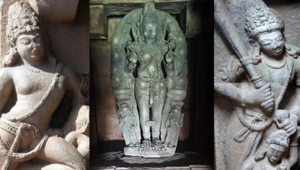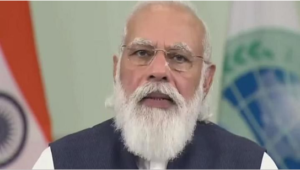
Chief Minister and Council of Ministers in State
The Constitution of India provides for a Parliamentary form of Government both at the Centre as well as the states. Therefore the functions of the office of the Chief Minister is similar to that of the functions of the office of the Prime Minister.
Article 163 states that the purpose of the Chief Minister and Council of Ministers is to aid and advise the Governor in the exercise of his functions, except in so far as he is by or under this constitution required to exercise his functions or any of them in his discretion
It further states that if any question arises whether any matter is or is not a matter as respects which the Governor is by or under this Constitution required to act in his discretion, the decision of the Governor in his discretion shall be final, and the validity of anything done by the Governor shall not be called in question on the ground that he ought or ought not to have acted in his discretion. The question whether any, and if so what, advice was tendered by Ministers to the Governor shall not be inquired into in any court
Article 164 –Chief Minister as a link between the Governor and the Council of Ministers
This article in other words defines the duties of the Chief Minister. According to this article the Chief Minister acts as a link between Governor and Council and individual ministers and the council.
The duties of the Chief Minister as defined in this Article are
- The Chief Minister communicates all the decisions of Council of Ministers to the Governor.
- The Chief Minister must furnish such information relating to the administration of the affairs of the State and proposals for legislation to the Governor.
- The Governor requires the Chief Minister should submit for the consideration of any matter to the Council of Ministers
- Any decision taken by the minister which has not been considered by the cabinet should be communicated to the council.
Article 164 –
Appointment of Chief Minister and Council of Ministers
- The Chief Minister shall be appointed by the Governor and the other Ministers shall be appointed by the Governor on the advice of the Chief Minister
- The Minister shall hold office during the pleasure of the Governor
- The Council of Ministers shall be collectively responsible to the State Legislative Assembly
Size and shape of the Council of Ministers.
In the original constitution nothing was mentioned about the size of the council of ministers. The 91st Constitutional Amendment Act 2003 fixed the size of the Council of Ministers. According to the Amendment –
- The number of ministers in the centre should not exceed 15% of the total strength of Lok Sabha.
- A state should have a minimum number of 12 ministers and the maximum should not exceed 15%of total strength of state Legislative Assembly.
Oath of office
Before a minister enters office he is administered Oath of office by the Governor.
Qualifications
- Should be a citizen of India.
- Should have completed the age of 25 years.
Conditions of office
A Minister, who for any period of 6 consecutive months is not a member of either houses of State Legislature shall at the expiry of the period cease to be a minister.
In other words a minister must become a member of State Legislature from the date of his appointment as a Minister and continue to be a member of the State Legislature.
Salaries & Allowances
Salaries & allowances is determined by the State Legislature and is specified in schedule-II of the constitution.












